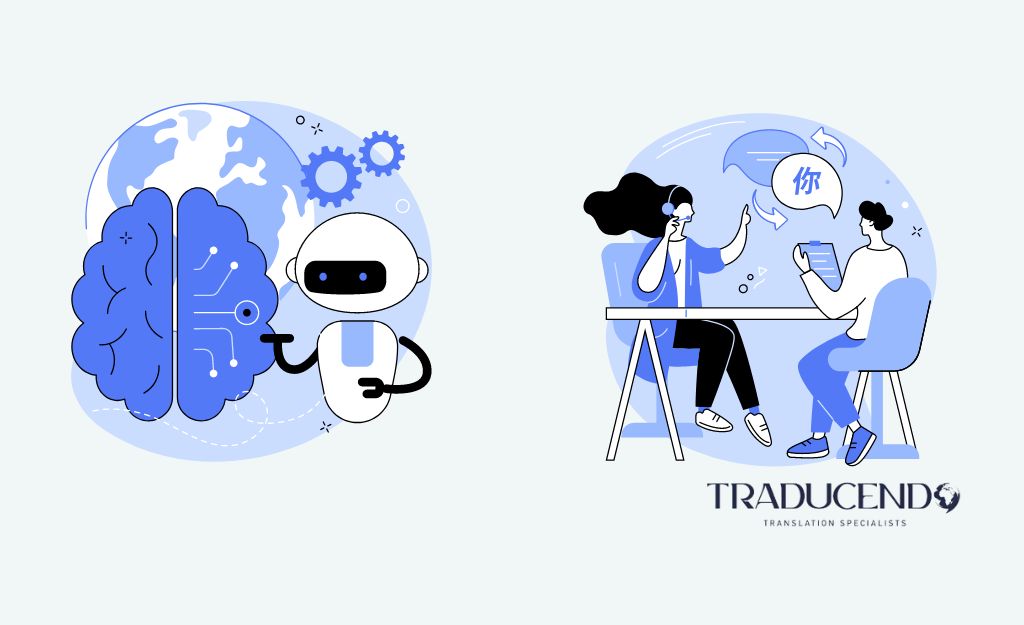This website uses cookies so that we can provide you with the best user experience possible. Cookie information is stored in your browser and performs functions such as recognising you when you return to our website and helping our team to understand which sections of the website you find most interesting and useful.
Translation industry trends: How technology is changing the landscape

Hello, translation fan! Pay close attention because in this post we’re going to tell you all about the 5 key trends affecting the translation industry right now.
Greater use of technology
Technology is playing an increasingly significant role in translation – and it’s transforming the way in which translation services are performed. Keep your eye on these key technologies:
Neural machine translation
Machine translation has been around for decades but advances in machine learning have taken this technology to the next level. Neural machine translation (NMT) uses artificial neural networks to translate texts from one language into another. NMT has significantly improved the quality of machine translations and has increased translator efficiency.
Artificial intelligence
Artificial intelligence (AI) is transforming the translation industry landscape. AI systems can analyse substantial amounts of data and make suggestions and recommendations to translators in real-time.
For example, an AI system can analyse a text and suggest translations for specific words and phrases based on context and terminology. This saves time for translators and improves the accuracy of their translations.
However, although machine translation can seem like a quick and cost-effective solution, it’s important to recognise that it has a few downsides:
- Lack of accuracy: Machine translation systems sometimes struggle with the complexity of human language, resulting in mistakes. Lots of words and phrases have multiple meanings and connotations, which translation engines can have difficulty understanding in context.
- Lack of cultural context: As we’ve spoken about before, culture plays an important role in language, and a lack of cultural awareness can result in inappropriate translations.
- Grammar issues: Translation engines can find it difficult to correctly recognise and use the grammatical rules of the target language.
- Inability to deal with technical documents: Machine translation systems can also struggle to cope with technical or specialised documents that contain specific terminology. These documents often require in-depth knowledge of the subject and the associated terminology and jargon.
- Lack of consistency: Translation engines can also have trouble maintaining consistency throughout a text.
The demand for specialised translations
Globalisation has led to an increase in the demand for specialised translations in areas like medicine, technology, engineering and law. Companies need access to high-quality, accurate translation services so that they can reach a global audience and ensure that their message is communicated effectively.
Here at Traducendo, our translators specialise in fields such as art, tourism, the environment, law, sport, science and advanced technologies, among others. We always produce professional translations that are tailored to the relevant language and culture.
Localisation
As we explained in How culture impacts translation, localisation is the process of adapting a product or service for a specific market, considering any cultural, linguistic or technical differences.
Localisation is much more than just translating the content of a text: it also involves adapting elements like currency, dates and time formats, units of measurement and cultural symbols.
With the rise of globalisation, and as companies continue to expand into new markets, localisation has become a vital tool for reaching new audiences and staying relevant in specific markets.
The importance of quality
As the demand for translation services increases, so too does competition within the industry. As a result, translation service quality is becoming increasingly important to clients, who want reliable, accurate translations delivered quickly and at competitive prices.
This means that translation service providers need to focus on maintaining the quality of their services and using quality control tools to ensure that their client’s requirements are met.
Collaboration and teamwork
Finally, collaboration and teamwork are also vital in the translation industry.
Translation projects often involve multiple translators and revisers who work together to produce a high-quality end product.
Translation service providers also often collaborate with technology companies to develop customised translation solutions for their clients. Collaboration and teamwork are key to ensuring that the client’s deadlines and expectations are met.
In summary, the changes in the translation industry, driven by technology, globalisation and increased demand for high-end services, are transforming the way that translations are produced. Translation service providers need to keep up with and adapt to these trends so that they can continue to offer high-quality services to their clients.
Here at Traducendo, we keep up with all the latest trends. We’ve built a team of highly specialised and skilled translators with experience in a wide range of subjects so that we can guarantee the accuracy and terminological consistency of all our projects.
What’s more, we use the latest translation tools and technologies to streamline the process and improve the quality of our translations. We’re always happy to adapt to the specific needs of each client and we always provide a personalised and reliable service. Get in touch today!

